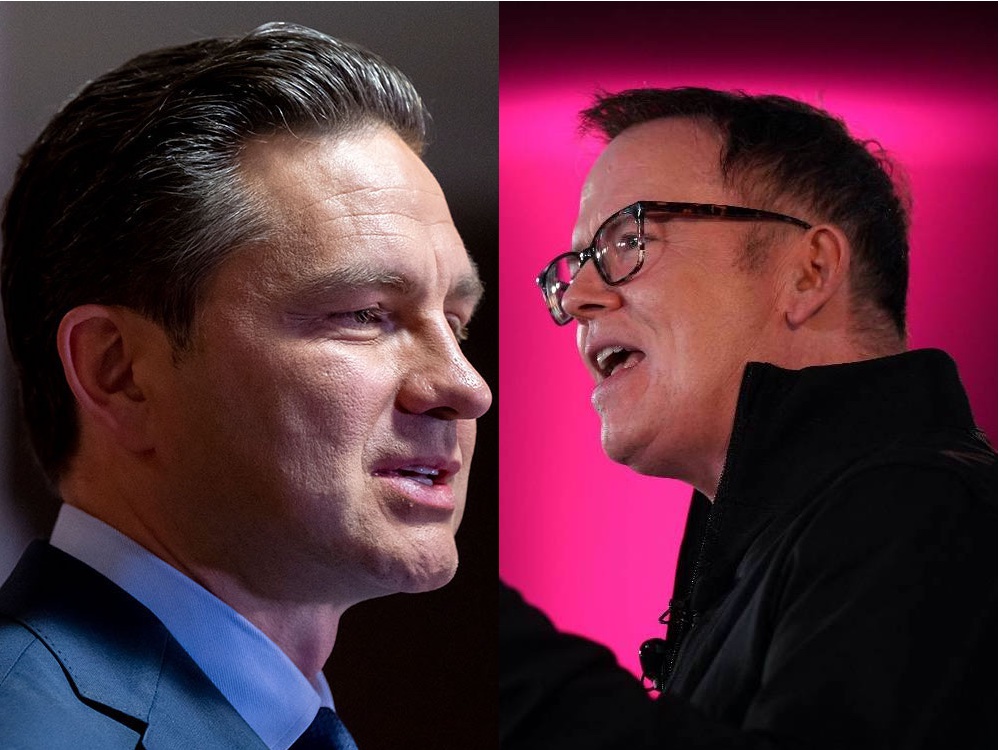BC United Leader Kevin Falcon said that although he’s proud of having been part of the government that introduced Canada’s first carbon tax, as premier he would keep it only if other provinces do.
“If the decision is made to eliminate the carbon tax, I’m not going to leave B.C. in a disadvantaged position being the only province that’s going to have a $95-a-tonne carbon tax,” he said in response to a question about what he would do if the federal Conservatives form government and Pierre Poilievre follows through on his promise to axe the federal carbon tax.
“We will get rid of the carbon tax in B.C. too,” Falcon said.
The theme of the week has been liberal politicians under political pressure flip-flopping on climate policy, said B.C. Premier David Eby. “Mr. Falcon wants to take us backwards,” he said. “British Columbia will remain a climate leader under the NDP.”
Falcon, whose party changed its name from the BC Liberal Party to BC United, made the pledge to follow any federal lead to kill or reduce the carbon tax during an announcement of measures he said would combat the rising cost of living and put more money in people’s pockets.
They included taking the carbon tax off all home heating fuels, a measure that would match the three-year exemption Prime Minister Justin Trudeau announced last week for people in rural places who use home heating oil. The federal change applies in most provinces and territories, but not in B.C., which has its own carbon tax with its own policies. Relatively few British Columbians use home heating oil, but many heat with natural gas, another fossil fuel.
Falcon said a BC United government would also cancel planned increases to B.C.’s carbon tax and eliminate the provincial fuel tax, which he said would save drivers up to 15 cents per litre of gasoline or diesel. And it would remove the carbon tax from fuels used on farms.
B.C. has had a carbon tax since the former BC Liberal government introduced it in 2008. It began at $10 per tonne of carbon emissions. At the time the NDP, then in opposition, campaigned against it.
The federal government has since set a minimum price on carbon, which provinces can meet with their own carbon taxes or with the federal tax. The minimum is $65 per tonne of carbon emissions in 2023 and is to go up by $15 a tonne each year until it reaches $170 in 2030.
“I was always very proud to be part of a government that introduced North America’s first revenue-neutral carbon tax,” Falcon said. “When circumstances change and you see the impacts it’s having on people and, importantly, you also do not see reduced emissions resulting from it, that’s when you’ve got to pivot and look at other things we can do to achieve better outcomes.”
In 2021 total emissions in B.C. were around the same as they had been in 2007, though with both population and gross domestic product growing, they have dropped per person.
Falcon did not specify what policies he supports to reduce carbon emissions but said he would have more to say on the topic soon.
According to a costing from BC United, the proposed changes to the gas tax and carbon tax would cost the province $4.7 billion over three years.
“The obvious question for me is where that money is going to come from,” said Eby. “What schools, teachers, hospitals, health-care workers are they going to get rid of to pay for this commitment to British Columbians?”
The government has doubled the carbon tax credit to support middle- and lower-income British Columbians, while at the same time providing an incentive to reduce carbon emissions, he said, a measure Falcon used to support. “The carbon tax is the most efficient and effective way to encourage companies and individuals to switch from more polluting sources of energy to clean energy sources, and we know we have to support people through that transition.”
It’s difficult to understand why Falcon would be abandoning climate leadership now, Eby said, following a summer of extensive drought and record wildfires.
The province wants the federal government as a partner as it provides rebates to encourage people to shift from fossil fuels to heat pumps for home heating, said Energy, Mines and Low Carbon Innovation Minister Josie Osborne.
She declined to say whether the province is also considering exempting home heating fuels from the carbon tax. “The federal government has made a rash decision and we’re not going to react with a rash decision of our own. We need a careful, thoughtful approach.”
During question period, Abbotsford South MLA Bruce Banman said the Conservative Party of BC has been clear where it stands.
“When we form government, we're going to axe the carbon tax to make life more affordable for everyday British Columbians,” he said.
“On the other hand, the BC United liberals have taken a different approach. They continue to flip-flop themselves into obscurity on this and other issues. Yesterday they’re supporting it. Today they're cancelling it. Tomorrow — well, I guess they'll wait for a poll or see what we, the Conservative party, will do.” ![]()
Read more: Federal Politics, BC Politics, Environment

















Tyee Commenting Guidelines
Comments that violate guidelines risk being deleted, and violations may result in a temporary or permanent user ban. Maintain the spirit of good conversation to stay in the discussion and be patient with moderators. Comments are reviewed regularly but not in real time.
Do:
Do not: